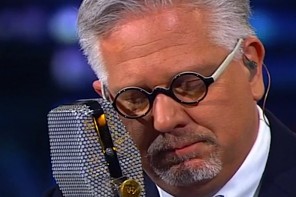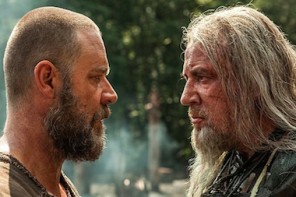Over the past few weeks I have written about Glenn Beck’s efforts to harness a pervasive sense of dissatisfaction in America (here, here, and here).
So of course I watched the rally on Saturday to see what would come of his over-the-top self-promotion. Many thought the event failed to live up to its promise. And the much touted “Plan” turned out to be the “Black-Robed Regiment,” which seems to be little more than encouraging pastors to join the fight.
Although this rally won’t be remembered as a turning point in the way Beck has promised, its myth-building quality will continue to resonate.
I mean “myth” in its technical sense rather than its popular meaning as something that is widely held to be true but actually is not. In this sense, myths are narratives though which groups of people construct a sense of themselves and pass that sense of themselves on to future generations. Myths may or may not be historically accurate but their significance is in their power to bring a group of people together with a vision of themselves and their group that is rooted in transcendent values.
With Founders Fridays, Beck University and 9-12 Project events around the country Beck and David Barton have been disseminating a mythic (and inaccurate) version of American history over the past few months. And Saturday’s rally was the blossoming of their powerful mythic narrative.
From start to finish the whole event was orchestrated to elicit a profound emotional experience, much the way religious revivals have evoked this kind of experience since the days of Charles Finney’s New Measures; every aspect was carefully designed and planned. The experience was shaped visually by the images on the giant screens at the front of the crowd (and on my television screen at home), the most powerful of which was the montage of Dr. Martin Luther King Jr. (as inapposite as Beck’s self-comparison to King is). The music, too—from Aaron Copeland’s “Fanfare for the Common Man” to “Amazing Grace”—facilitated this experience. And of course there was the lofty rhetoric about “vision” and “values.” Perhaps most powerful of all was the booming voice of the narrator shaping the audience’s understanding of the event, as the narrator sounded like the “voice of god” in a movie trailer.
Americans who feel displaced economically, socially, and psychologically were eager to enter into an emotion-laden revisioning in which America is once again exceptional. In Beck’s myth, he frees them the guilt of racism. Americans are good and just. Faith, hope and charity are the values that make us so.
Isn’t this who we all want to be? But the very meaning of those values is up for grabs. And that’s the difficulty this lofty language presents: we don’t all agree on what those words mean.



